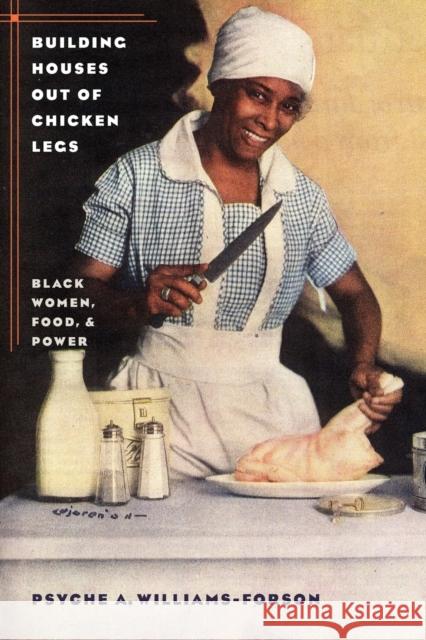Building Houses out of Chicken Legs: Black Women, Food, and Power » książka
Building Houses out of Chicken Legs: Black Women, Food, and Power
ISBN-13: 9780807856864 / Angielski / Miękka / 2006 / 336 str.
Chicken--both the bird and the food--has played multiple roles in the lives of African American women from the slavery era to the present. It has provided food and a source of income for their families, shaped a distinctive culture, and helped women define and exert themselves in racist and hostile environments. Psyche A. Williams-Forson examines the complexity of black women's legacies using food as a form of cultural work. While acknowledging the negative interpretations of black culture associated with chicken imagery, Williams-Forson focuses her analysis on the ways black women have forged their own self-definitions and relationships to the "gospel bird."
Exploring material ranging from personal interviews to the comedy of Chris Rock, from commercial advertisements to the art of Kara Walker, and from cookbooks to literature, Williams-Forson considers how black women arrive at degrees of self-definition and self-reliance using certain foods. She demonstrates how they defy conventional representations of blackness and exercise influence through food preparation and distribution. Understanding these complex relationships clarifies how present associations of blacks and chicken are rooted in a past that is fraught with both racism and agency. The traditions and practices of feminism, Williams-Forson argues, are inherent in the foods women prepare and serve.
Chicken--both the bird and the food--has played multiple roles in the lives of African American women from the slavery era to the present. It has provided food and a source of income for their families, shaped a distinctive culture, and helped women define and exert themselves in racist and hostile environments. Psyche A. Williams-Forson examines the complexity of black womens legacies using food as a form of cultural work. While acknowledging the negative interpretations of black culture associated with chicken imagery, Williams-Forson focuses her analysis on the ways black women have forged their own self-definitions and relationships to the "gospel bird."
Exploring material ranging from personal interviews to the comedy of Chris Rock, from commercial advertisements to the art of Kara Walker, and from cookbooks to literature, Williams-Forson considers how black women arrive at degrees of self-definition and self-reliance using certain foods. She demonstrates how they defy conventional representations of blackness and exercise influence through food preparation and distribution. Understanding these complex relationships clarifies how present associations of blacks and chicken are rooted in a past that is fraught with both racism and agency. The traditions and practices of feminism, Williams-Forson argues, are inherent in the foods women prepare and serve.











